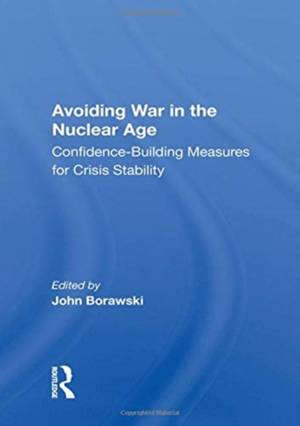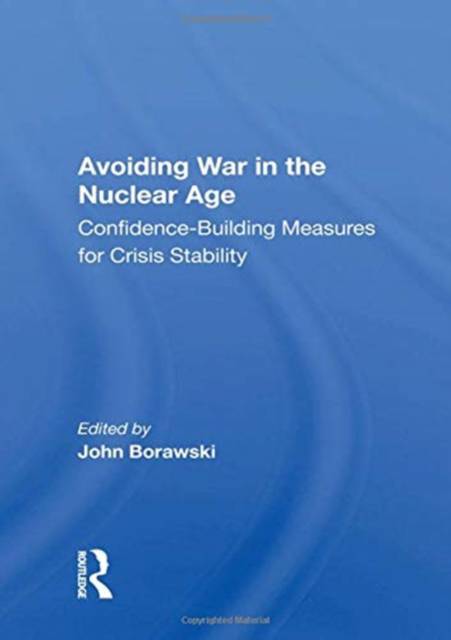
Door een staking bij bpost kan je online bestelling op dit moment iets langer onderweg zijn dan voorzien. Dringend iets nodig? Onze winkels ontvangen jou met open armen!
- Afhalen na 1 uur in een winkel met voorraad
- Gratis thuislevering in België vanaf € 30
- Ruim aanbod met 7 miljoen producten
Door een staking bij bpost kan je online bestelling op dit moment iets langer onderweg zijn dan voorzien. Dringend iets nodig? Onze winkels ontvangen jou met open armen!
- Afhalen na 1 uur in een winkel met voorraad
- Gratis thuislevering in België vanaf € 30
- Ruim aanbod met 7 miljoen producten
Zoeken
Avoiding War in the Nuclear Age
Confidence-Building Measures for Crisis Stability
John Borawski
Hardcover | Engels
€ 182,45
+ 364 punten
Uitvoering
Omschrijving
Given the disappointing history of arms control negotiations and agreements, disconcerting trends in the balance of power, and emerging technologies that challenge conventional assumptions about deterrence, new ways to promote security through negotiations must be identified and utilized if arms control is ever to play an integral role in enhancing deterrence and reducing instabilities. Confidence-building measures (CBMs) may offer one way out of the contemporary arms control morass. Instead of focusing on limiting the number and types of weaponry, CBMs are designed to control how, when, where, and why military activities occur. By clarifying military intentions and regulating the operations of military forces in times of both crisis and calm, CBMs can help diminish the opportunities for war arising from surprise attack or from miscalculation, accident, or failure of communication. This volume assembles leading CBM experts from government and academia to assess the utility of CBMs in a wide variety of areas. It is intended to serve as a basic primer on the subject, as well as to contribute to the ongoing national debate over the role of arms control in strengthening national security by analyzing new and fruitful avenues toward that over-riding objective.
Specificaties
Betrokkenen
- Auteur(s):
- Uitgeverij:
Inhoud
- Aantal bladzijden:
- 250
- Taal:
- Engels
Eigenschappen
- Productcode (EAN):
- 9780367008680
- Verschijningsdatum:
- 22/07/2019
- Uitvoering:
- Hardcover
- Formaat:
- Genaaid
- Afmetingen:
- 152 mm x 229 mm
- Gewicht:
- 452 g

Alleen bij Standaard Boekhandel
+ 364 punten op je klantenkaart van Standaard Boekhandel
Beoordelingen
We publiceren alleen reviews die voldoen aan de voorwaarden voor reviews. Bekijk onze voorwaarden voor reviews.











